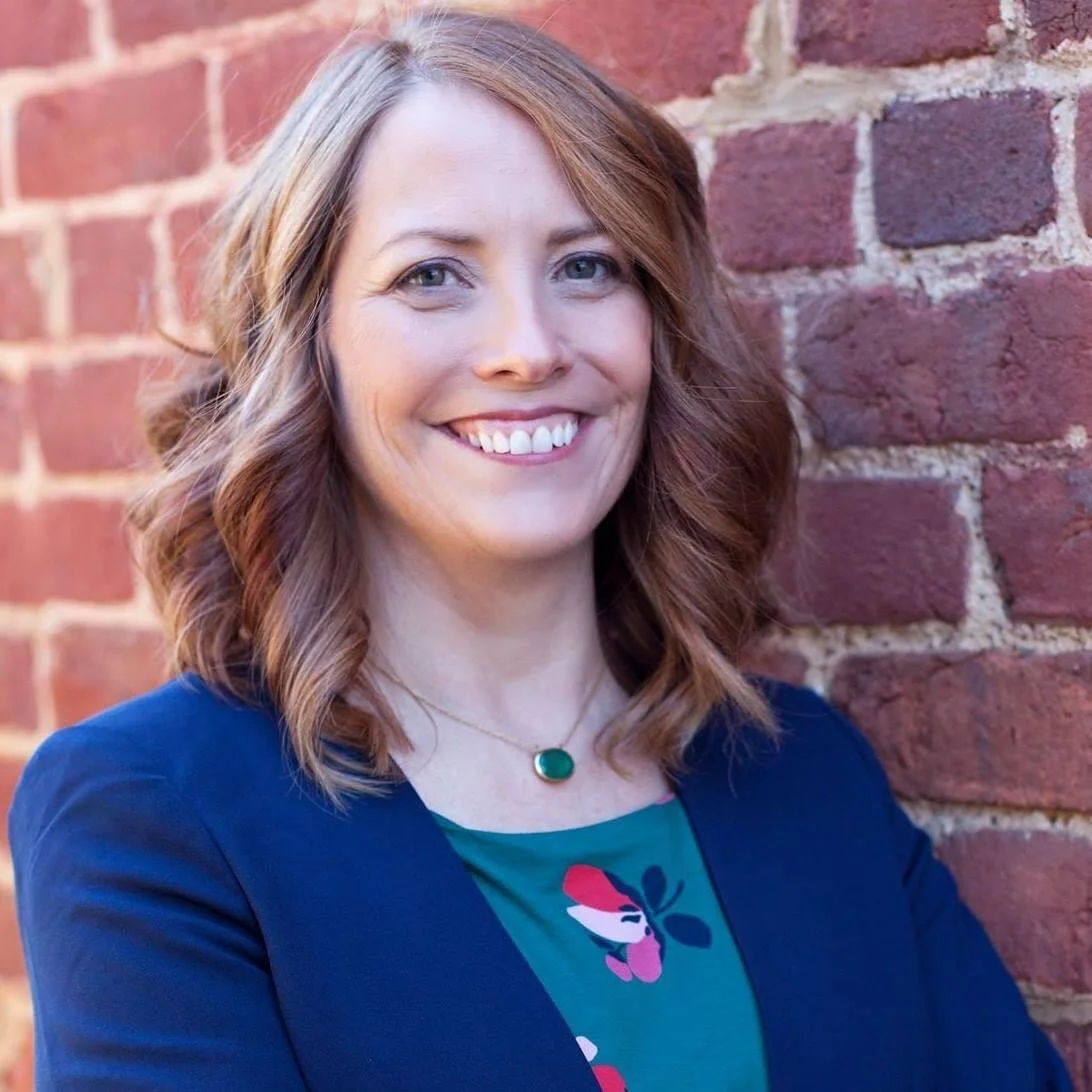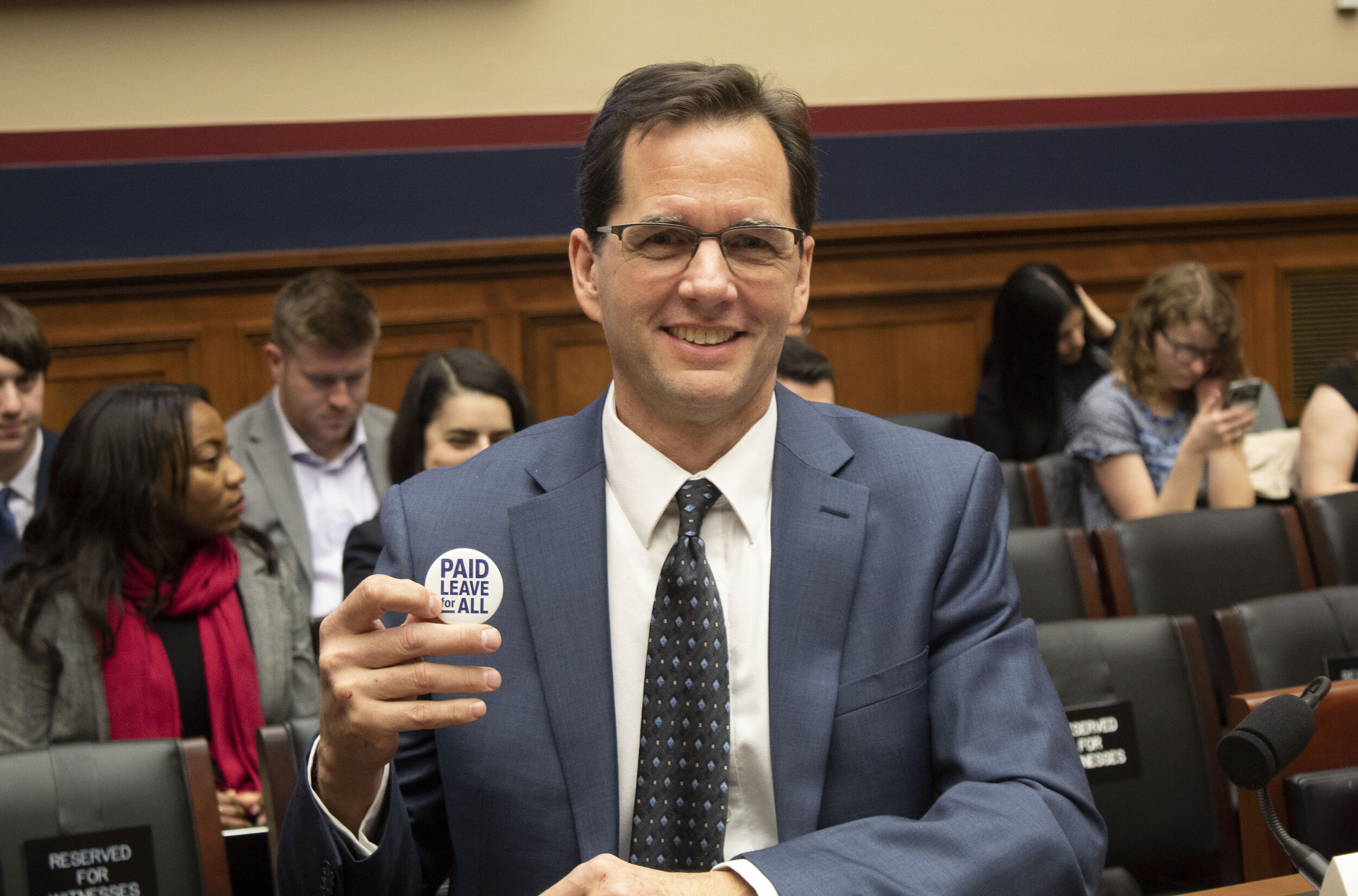Media Availability
Contact: Sarah Crozier, press@mainstreetalliance.org
My husband Mark and I have run a company renovating barns for the past 20 years, including on our DIY Network televisions Barnwood Builders. Our show has translated into a home decor store, Barnwood Living in White Sulphur Springs, WV.
Even with this level of success, we are still a very small business and offering paid leave without a federal program has not been possible. When we had an employee who was pregnant and we did not want to lose her. We talked to our employee and ended up paying her her salary so we wouldn't lose her, while we picked up the extra work. It was tough on our business, but without a strong national paid leave policy, we had no other option. A federal policy would mean our employees could still receive their salaries on leave, and we could use the extra funds to hire temporary workers or pay overtime for other staff rather than doubling up on salaries.
During the pandemic, being a caregiver became a full-time job for me. One of my kids has Down Syndrome and was at high risk. I had to put my child’s safety first. And then, in November, my brother got Covid. My mom lives with him and she tested positive, too. Then my sister-in-law and their two kids needed support— and I am their support. While they were quarantined and recovered, I took care of them — errands, the drugstore, groceries. The whole time, I felt so scared — for them, for my family, for my business, but what could I do? They’re my family and they needed me. Looking back, having a paid leave policy would have been a game-changer for me, for my employees, for my business, for my family. I certainly hope we never have another pandemic like this, but what I learned was that when someone in your family needs care — doesn’t matter what for — you’re on your own. That’s not right, and it’s definitely not right for small business owners like me. Nobody should have to choose between caring for themselves or a loved one and their livelihood.
We want to feel competitive with larger businesses in the benefits we can offer. As a micro business, any benefits come directly out of our pocket. Recruitment and retention is a struggle. We’ve had employees leave for better benefits and higher pay from corporations. Retention of those skilled employees matters a lot to my business. I want our employees to feel taken care of, and not be afraid to take time off and lose wages. Butchering is a labor-intensive skill.
I own Superior Pocahontas Construction and Bucane Medical Supplies, both based in Logan, WV. Before opening my own businesses, I was a registered nurse (RN). When my daughter was born three months early, she was in the NICU for several months. During that time, I was only able to take off four days, because I did not have access to paid leave. My wife was unable to work during this time and was with our daughter in the hospital.
Now that I’m a business owner, I want to offer paid leave and for me, even a payroll tax would be an easier way for everyone to afford it. I offer health insurance at my company of 40 or so employees, but some times it’s not enough. Once, I had an employee who developed gangrene and had to take extended time off work to heal. I didn't want to lose the employee so paid him out of pocket when he was unable to be at work. A national paid leave program would be critical for situations we cannot predict.
The lack of paid leave is a huge problem for me as a small business owner. When one of my employees broke both her arms a few years ago, I had to pay thousands of dollars out of pocket for medical leave. Recently, I had an employee who needed a hip replacement, and she needed time to heal for 10 weeks. I want to be able to cover her, but doing so would be a huge financial hit to our business and our family. The last time we covered medical leave out of pocket, we fell behind on our commercial lease and home mortgage. Our current case-by-case out-of-pocket practice could sink our business.
There are not enough policies and systems in place to help support women thriving as an entrepreneur once they start having kids, so the reality is that women don’t get over the initial hurdle of founding a company. This country deserves more, should do more, and can do more. Let’s support women and babies with paid parental leave and universal childcare support, which are both articulated in the American Families Plan proposed by the Biden administration. If we want to increase the number of female entrepreneurs, this is the way to do it. If we want to tackle large societal issues with more financial success and jobs for our nation’s economy, let’s better support and take advantage of half of our population.
Four years ago one of my employees came to me and said his wife was having twins. He needed help getting some paid time off, and we weren’t sure to what to do. Luckily, I had a friend who knew about New Jersey’s Family Leave Insurance Program. The paperwork was pretty straightforward. We filled it out together and sent it in, and he got two thirds of his wages replaced while bonding with his twins. He is a very important part of my business, and this was very important to his life. So we made adjustments, he got some paid time with his family, and he’s still with us.
I also remember life before our paid leave program, and I know that’s still the reality for most small businesses and workers around the country. In 2006, before there was any such program, I had an employee who had to leave his job because of family needs. I only found out after the fact that his mother was dying of cancer, around the Christmas season. He could have really used the New Jersey Family Leave Insurance then. This was awful for him. It was a tough loss for me personally since along with losing an employee, I also lost a longtime friend. It was also detrimental to my business. He had been my best employee for several years and performed many critical management functions. The costs of the time and money it took to replace him were astronomical. I had to take time away from my responsibilities as the owner to fill the gap in the interim. The difference the state Family Leave Insurance Law has made for my employees and my business is clear.
The pandemic we are slowly emerging from taught us a few things about our economy and our public health. It taught us that some of the most important workers, the ones we can’t live without, don’t often receive the pay and the benefits commensurate with their importance. It also taught us that at some point all of us will need to miss some work—whether to get healthy or to care for a loved one—and that it’s better to have a plan in place for these absences than to make one up as we go along. In New Jersey, where I live, we have had a paid family and medical leave program since 2009. Here is what I got as a small business with fifteen employees: a benefit program that increased the pool of prospective employees who might choose to work for my small company instead of a major corporation that can afford these types of benefits on their own. We can and should make it a national program. The time is now to pass a national, universal paid family and medical leave policy—for our small businesses, our families and our communities.
East Wheeling Clayworks began as a garage startup in 2016, selling our ceramics at festivals and trade shows. We eventually both quit our jobs, Adam in construction and Beth in an office and both went full time at EWC. One month later, Beth found out she was pregnant and expecting their first child. Without paid leave, and child care, we struggled to make it work with our brand new businesses selling ceramics and offering community pottery classes. We also have no child care and both play integral roles at East Wheeling Clayworks, so our daughter Ollie goes with them to the shop each day.
As an employee at a major corporation, and now a small business owner and consultant I have seen firsthand how our lack of a national paid leave program is hurting businesses of all sizes and their employees. Far too many families are suffering financial hardship due to lack of paid leave when a family member needs the worker(s) to be at home. Some workers, especially women, are leaving the workforce because the US doesn’t have a paid leave policy that supports them taking the time they need to care for their loved ones without jeopardizing their household budget. This results in businesses of all sizes spending too much for staff turnover in recruitment and training as well as lost productivity, plus less money flowing in the economy overall. This pandemic has been a wake-up call - we need to make passing a national paid leave program a priority in 2021.










